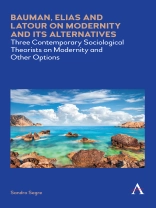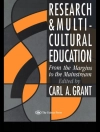‘Bauman, Elias and Latour on Modernity and Its Alternatives’ provides a synopsis of and comparison between the conceptions of modernity and its alternatives, as found in the works of Bauman, Elias and Latour. Bauman and Elias share a few relevant features bearing on their conceptions of modernity and its possible alternatives; Latour, on the other hand, when compared to these sociologists, is a maverick thinker. The set of alternatives is as follows: modernity vs. post-modernity (Bauman); civilization vs. barbarity (Elias) and successful vs. unsuccessful hybrids (Latour). Bauman’s and Elias’s conceptions of modernity differ in some important respects. The constitutive elements of modernity are, according to Bauman, cognitive order, regulation, stability of relations and identities, and the role of intellectuals as legislators. In Elias’s view, pacification and civilization are the hallmarks of modernity. Both Bauman and Elias maintain, despite their differences, that a condition of barbarity indicates the absence of civilization, but not of modernity.
According to Latour, the scientific usefulness of the concepts of modernity and, by implication, of non-modernity is questionable. If hybrids are defined as heterogeneous associations between humans and non-humans such as instruments and machines, by virtue of their great number they produce a variety of ways in which distinct and incompatible modes of knowledge may be interpreted, defined, and linked. This occurs by means of mediators.
A hybrid condition characterizes the modern world; hence, non-humans are relevant for investigating the modern world as they mediate between nature and society. The latter is a contraposition which Latour rejects, along with those between actor vs. system, science vs. society, nature vs. culture, and humans vs. non-humans. As for this last contraposition, Latour argues that this very distinction results from a process of purification, since humans and non-humans may be actors that form an integrated whole. Modernity therefore results from the two related but opposed processes of hybridization and purification. Much as the very concept of modernity is of questionable usefulness, the concept of non-modernity should also be relinquished. The existence of hybrids makes modernity and non-modernity impossible. In this sense, Latour has contended that we have never been modern. The joint product of human and non-human activities, as resulting in hybrids, may be a failure due, according to Latour, to the mismatch between the human and non-human actors.
Mục lục
Preface; 1. Bauman; 2. Elias; 3. Latour; 4. Conclusion; Index.
Giới thiệu về tác giả
Sandro Segre was professor of sociology and sociological theory at the University of Genoa, Italy, until his retirement in 2015.












